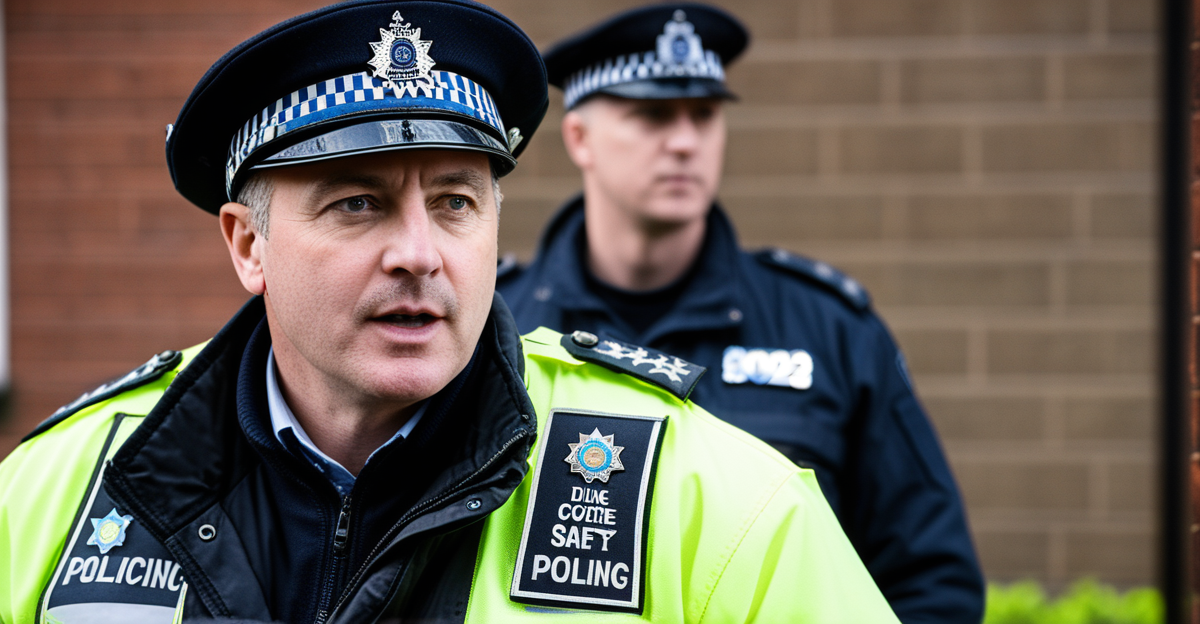Key Principles of Community Policing and Neighborhood Safety
Community policing is a proactive approach that fosters collaboration between local police forces and residents to enhance neighborhood safety. In the UK 2023 context, this strategy encourages police officers to engage with communities directly, promoting trust and mutual support. Unlike traditional policing, community policing focuses on prevention by addressing the root causes of crime and social disorder.
Active citizen participation plays a crucial role in this framework. When residents contribute by sharing information, participating in local meetings, or volunteering for neighborhood patrols, crime rates can significantly decrease. This collective vigilance creates an environment where neighborhoods feel safer and more connected.
This might interest you : The definitive guide to navigating uk healthcare complaints: a systematic approach to tackling service issues
Recent data from UK policing trends in 2023 reveal that areas with robust community policing efforts show notable reductions in burglary and antisocial behavior. Furthermore, neighborhoods actively involved in joint initiatives with police report higher satisfaction with public safety services. The emphasis on partnerships ensures that community concerns are heard and addressed rapidly, reinforcing a cycle of trust and cooperation.
By embedding shared responsibility and ongoing dialogue, community policing transforms safety from a solely police-driven mission into a joint community commitment. This principle is vital for fostering resilient and secure neighborhoods across the UK today.
Also read : Unlocking homeownership: mastering uk mortgages with a challenging credit score
Legal Considerations and Responsible Involvement
Understanding legal guidance is essential for effective and safe citizen participation in community safety. In the UK, laws clearly define the boundaries within which residents can assist police or engage in Neighbourhood Watch activities. Citizens must respect these UK laws to avoid unintentional legal repercussions.
When assisting police or joining community watch programs, individuals have specific rights and responsibilities. Legally, citizens can report crimes and suspicious activities, but they are not permitted to use force or perform law enforcement duties. This distinction helps protect both the public and police officers. Furthermore, participants must exercise caution to avoid infringing on others’ privacy or civil liberties.
Safeguarding privacy and data is another critical aspect. Citizens collecting or sharing information should adhere to legal standards on confidentiality and data protection to maintain trust and avoid misuse. These considerations ensure that community involvement enhances neighborhood safety without compromising individual rights.
By understanding and respecting the legal framework, community members contribute responsibly, reinforcing positive cooperation with law enforcement and fostering safer UK neighborhoods in 2023. This balance between active participation and legal compliance is crucial for sustained, effective community policing.
Legal Considerations and Responsible Involvement
Understanding legal guidance is essential for any citizen engaging in community policing under UK laws. When participating in neighborhood safety, residents must know the limits of their involvement to avoid unintended legal consequences. UK legislation outlines clear boundaries on what actions citizens can take when assisting police or joining community watch programs.
Citizens have the right to report crimes and suspicious behavior but do not possess the authority to intervene forcibly. This distinction ensures safety and legality in all community policing efforts. Responsibilities include respecting privacy, avoiding vigilantism, and cooperating cooperatively with law enforcement. Breaching these responsibilities can result in legal penalties or undermine the overall neighborhood safety mission.
Safeguarding privacy and data is particularly vital. Residents should handle shared information responsibly to protect individuals’ civil liberties. This means refraining from disclosing personal data without consent or engaging in surveillance practices beyond community watch guidelines. Following these legal and ethical standards builds trust between the community and police, which is crucial for effective collaboration and sustaining safe environments.
By staying informed about UK laws and citizen responsibilities, communities can actively contribute to safety initiatives in a lawful and respectful manner. This framework safeguards both community members and the integrity of neighborhood policing efforts.
Step-by-Step Guide to Engaging in Community Policing
Engaging effectively in UK community policing requires clear, actionable steps. First, identify local initiatives such as Neighbourhood Watch groups or police-led outreach programs. These platforms offer structured opportunities for residents to contribute to neighborhood safety.
Next, building relationships with local police and agencies is vital. Attend community meetings or open days to meet officers, understand their priorities, and establish communication channels. Regular interaction encourages trust and facilitates prompt sharing of concerns or observations.
Effective communication is key. When participating, use clear, concise language and provide accurate details to police regarding suspicious activities or local issues. This precision ensures responses are timely and relevant.
Volunteering roles vary from information sharing and organizing events to patrolling alongside officers, all reinforcing community policing goals. Consistent collaboration strengthens shared responsibility across neighborhoods.
By following these structured steps, citizens can support law enforcement meaningfully and enhance neighborhood safety in practical, coordinated ways within the UK 2023 framework, helping to reduce crime and improve community well-being.
Step-by-Step Guide to Engaging in Community Policing
Engaging effectively in UK community policing begins with understanding how to participate in your local area. Start by identifying existing community safety initiatives such as Neighbourhood Watch groups or police-led events. These provide structured opportunities to get involved and contribute meaningfully to neighborhood safety.
Building relationships with local police is crucial. Attend community meetings and establish open lines of communication with officers. This cooperation strengthens trust and ensures citizens can share concerns promptly. Police often provide guidance on actionable steps residents can take without overstepping legal boundaries.
Effective communication enhances collaboration. Always report suspicious activities clearly and responsibly, using designated police contact methods. Familiarise yourself with digital tools, like community alert apps, to stay informed and help disseminate timely updates within your neighborhood.
Volunteering time, sharing information, and participating in patrols or safety campaigns are powerful ways to support UK 2023 community policing efforts. Each step you take fosters a safer and more united community. Remember, sustained involvement paired with constructive dialogue maximizes your impact and keeps neighborhoods secure.
Role of Volunteers in Neighborhood Safety
Community safety significantly benefits from volunteer roles within Neighbourhood Watch UK and similar programs. Volunteers actively support crime prevention by acting as the eyes and ears of their communities. Their tasks include patrolling, sharing timely information with police, and organizing public awareness campaigns.
Volunteers often require specific skills and training to maximize their impact. This training covers legal boundaries under UK laws, effective observation techniques, communication methods, and recognising suspicious behaviour. Equipped with these tools, volunteers can contribute confidently and responsibly without risking personal safety or legal complications.
Notable case studies from UK neighborhoods showcase how well-trained volunteers reduce incidents of burglary and antisocial behaviour. For example, communities where volunteers coordinate patrols and maintain regular contact with local police report faster response times and increased trust between residents and law enforcement.
In sum, volunteer roles in community safety empower residents to become proactive participants. This engagement not only strengthens neighborhood safety but also fosters a collaborative spirit crucial to the success of community policing efforts in the UK 2023 landscape.
Role of Volunteers in Neighborhood Safety
Volunteers are essential to strengthening community safety in the UK. Their involvement goes beyond passive observation, actively supporting efforts like Neighbourhood Watch UK schemes. These volunteer roles include patrolling, organizing events, sharing vital information, and helping disseminate safety messages within the community.
Volunteers often undergo training to develop skills in communication, conflict resolution, and understanding legal limits. This prepares them to contribute effectively while respecting UK laws and enhancing neighborhood safety responsibly. Such training builds confidence and ensures that volunteers act in ways that support rather than complicate community policing efforts.
Successful volunteer programs frequently showcase impactful outcomes. For example, some neighborhoods report reduced crime rates due to consistent patrols and rapid information sharing coordinated by volunteers. Others highlight improved community cohesion, where residents feel more connected and involved in local safety efforts.
By engaging in these roles, volunteers become trusted partners in the chain of safety. Their proactive presence and local knowledge provide law enforcement with crucial insights that lead to quicker, more targeted responses. This collaboration exemplifies the value volunteers bring to the UK’s 2023 community policing landscape.
Key Principles of Community Policing and Neighborhood Safety
Community policing centers on collaboration between police and residents to promote neighborhood safety in the UK 2023 context. This approach moves beyond reactive law enforcement by addressing crime’s root causes through proactive engagement. The core principle is partnership: police and citizens share responsibility for public safety.
Active citizen participation amplifies community policing’s effectiveness. When residents contribute by reporting suspicious behavior, attending meetings, or volunteering, they directly support crime prevention. This involvement not only reduces crime but also builds trust, making neighborhoods feel safer and more cohesive.
Recent UK data underscores community policing’s impact. Areas with well-structured programs report declines in burglary and antisocial behavior rates. Surveys indicate higher satisfaction among residents involved in joint policing initiatives, demonstrating that integrating community input leads to better safety outcomes.
In essence, community policing in the UK 2023 framework blends partnership, prevention, and local expertise. Citizens and police working together create a resilient safety network, proving that collaboration is essential for sustained neighborhood security.











